02-28-2024
When I started my freshman year at Purdue last fall, I anxiously scrambled to find a club or society that fit my interests and would develop my professional skills. Like many incoming students, I felt lost in a sea of information as I scoured through what seemed like thousands of potential activities. I wanted to find a community that made Purdue feel a little smaller, and that’s when I stumbled across the National Society for Sales Engineers (NSSE).
You might be wondering, “What even is a sales engineer?” or, “Of all the clubs available to students, why join NSSE?”
A sales engineer is a professional salesperson who sells complex technological and scientific products to clients. They represent a fusion between sales and STEM – translating in-depth knowledge of complex products to potential customers.
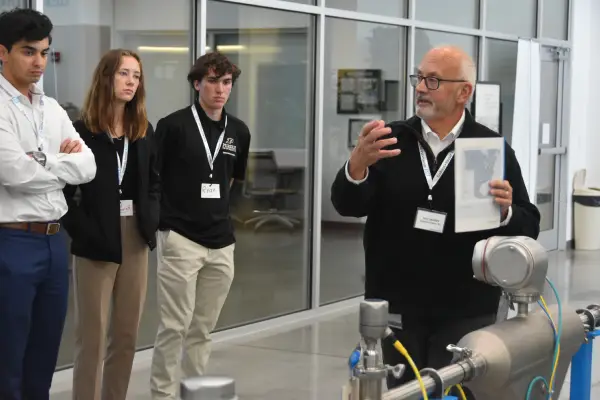
To answer why I joined NSSE, we need to travel back in time to high school Ryan. I grew up in Bloomington, home to a well-known rival of the Boilermaker faithful. Growing up, I was resigned to the idea of staying in town for college. After all, many of my friends planned on doing just that! It wasn’t until I stumbled upon a Common App advertisement for Integrated Business and Engineering (IBE) at Purdue’s Daniels School of Business that I began to reconsider my college decision.
After researching the Daniels School and IBE, I decided to apply to Purdue. I loved the idea of studying a discipline that combined my skills in engineering with a passion for business. A few months later, I was on campus, starting my first semester as a Boilermaker!
Right away, I prioritized getting more involved on campus. As a member of Larsen Leaders Academy, I developed a great relationship with my peer mentor, who had started NSSE the previous year. Our friendship pushed me to dive into the club and take advantage of an opportunity I couldn’t have dreamed up.
A little while after joining NSSE, its executive team announced an exciting new partnership with world-leading instrumentation company Endress+Hauser, which provides all manner of high-tech widgets for industries like food and beverage, water and wastewater, oil and gas, power and energy, life sciences and chemicals. Through this partnership, our club would engage in hands-on learning opportunities and showcase our talents in a voluntary case competition. Though I had never done a case competition, I was interested in it, as it is a hands-on practical learning experience.
I couldn’t do the case alone, though! I decided to have some fun with the competition, choosing four of my friends from the business school to join my team. While working with friends certainly has pros and cons, our team had a diverse range of majors, from marketing to business analytics and information systems. While my friends aren’t in NSEE, our diverse skills made prioritizing and delegating tasks much easier as the case competition progressed.
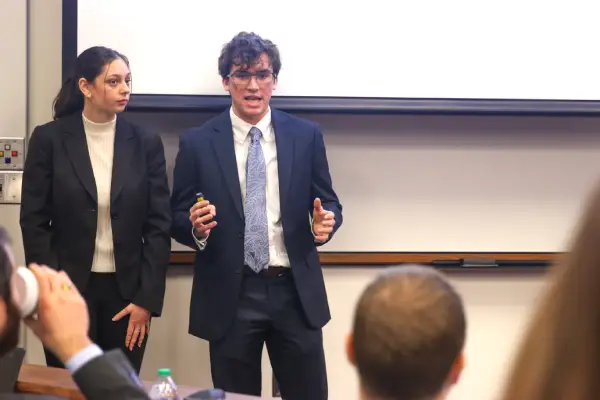
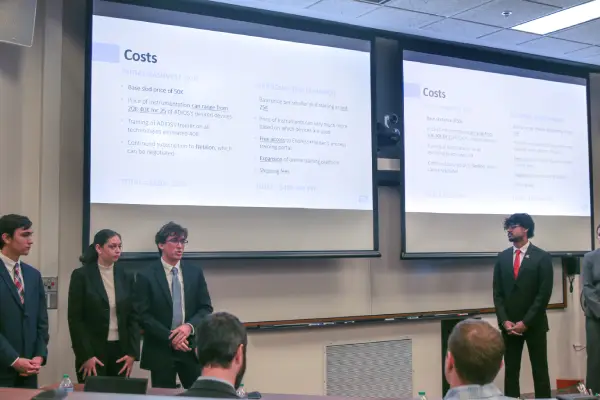
As the partnership kicked off, one of my team’s biggest questions was, “How do we do this the right way?” Our overall task was to create process training devices for a food and beverage company and plan how these devices could be implemented in various business sectors. However, we were given a lot of creative leeway to decide how exactly to plan and distribute these devices. What’s more, Endress+Hauser wanted to see that we could implement the devices effectively, embody the role of a sales engineer, and fully know what it means to be a part of the company.
One of the competition's most unique and helpful aspects was touring Endress+Hauser’s campus in Greenwood. The tour helped me and members of NSSE understand what the company did and how their processes worked, and seeing the training devices described in the case competition provided me with a reference point before trying to find a solution as a group.
As the semester progressed, working on the competition presented unique challenges. I found it difficult to balance my coursework with the case and other commitments. School needed to come first, so it took a lot of planning and prioritizing to get work done for the case amid busyness with exams and other projects. In addition, our team struggled with finding consistent times to work on the case, especially with conflicting schedules. Since our team was all new to college and the case competition world, we wrestled with doubts about our work and not knowing whether we’d done enough to succeed.
Our team pushed through the stress and uncertainty to complete the case. We realized pretty early on that it was impossible to make a perfect solution. We framed the challenge around the need to minimize risks, build a practical product and sell it effectively. Every flaw we encountered had a unique answer, and it was a great learning opportunity to find new ways to solve each new problem.
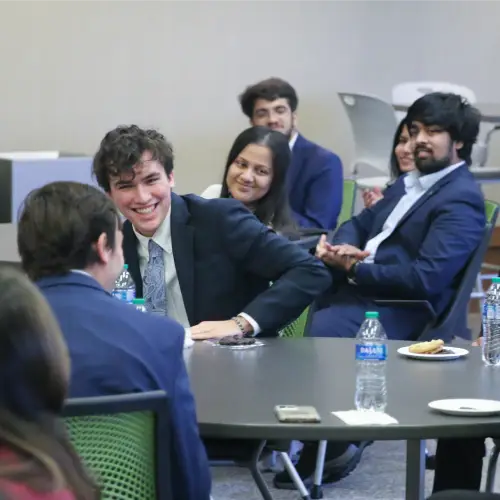
As the semester and case deadline loomed, we worked countless hours to polish our presentation and findings; all wrapped up in a brief virtual recording to be reviewed by the judges. Out of all the teams, the best three were invited to present in person in the spring. While I felt great about our final product, I had no idea whether we’d move on. I’d adopted the “whatever happens, happens” mindset. I was happy with our work but didn’t want to get my hopes up on moving on. After all, this was my first case competition!
I remember my eyes being glued to the notification on my computer. While I wanted to maintain a relaxed attitude, I was a ball of nerves and excitement as I opened an email from the competition panelists. Our team, the Frieda Consulting Council, was selected as a finalist! As I read the new set of instructions, my mindset shifted from apprehension to determination and focus. Our hard work had paid off – but now it was go time. Even as a group of friends, we were incredibly focused in preparation for the final presentation. We worked for hours straight without straying off task, even as we navigated disagreements about presentation techniques and various stressors leading to presentation day.
When the day came to present, I was so nervous, I still tripped over my words during final practice. I thought I would throw up while walking to my economics class that morning.
We were given 30 minutes during the presentation, 20 minutes to present and 10 for Q&A with the judges. Since most of my work stemmed from in-depth market research, I presented our solutions and costs and fielded questions from the panel. As the presentation ended, I felt confident with myself and our team. Regardless of the outcome, we had pulled everything together and developed a product we were proud of.
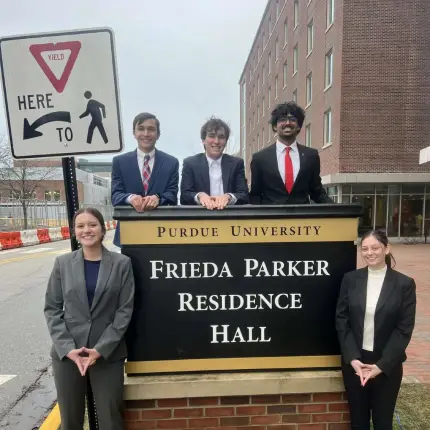
When they announced the winners, they announced second place first. When it wasn’t us, I accepted that we had finished in third. We hoped for second place, at least, though being a finalist had given us more experience. Then it came time to name the winner – The Frieda Consulting Council. I couldn’t believe it – we had won! The looks on our faces really must have been something, and our excitement couldn’t be contained, even at a business professional event!
I knew winning was possible, but I never expected we would take home first place. Our team of freshmen, most of whom, including me, had never done a case competition.
The teams we competed against had far more experience, which made the honor and distinction that much more exciting.
This experience with Endress + Hauser gave us a chance to accomplish a goal, especially during the times when the pressure felt unmanageable. We dove head-first into an industry we had no previous experience with, which was a huge learning curve. I’ve learned that it’s powerful to push oneself and feel uncomfortable. I wouldn’t have gained such a meaningful personal and professional experience if I stayed in my comfort zone.
I encourage every student to take advantage of case competitions while at Purdue. Challenge yourself, take a risk. Regardless of the outcome, you’ll learn so much – just like I did!
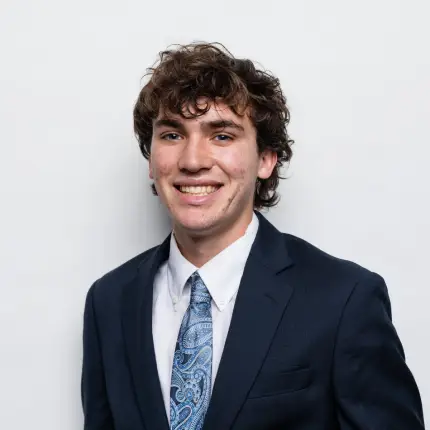
Ryan Mooney is a freshman from Bloomington, Indiana, studying Integrated Business and Engineering. As a student, Ryan is involved as a member of Larsen Leaders Academy, the National Society of Sales Engineers (NSEE), and the Outreach Team Leader for Vertically Integrated Projects FAA/Drone Team, working with local companies to incorporate drone technology into their daily operations.